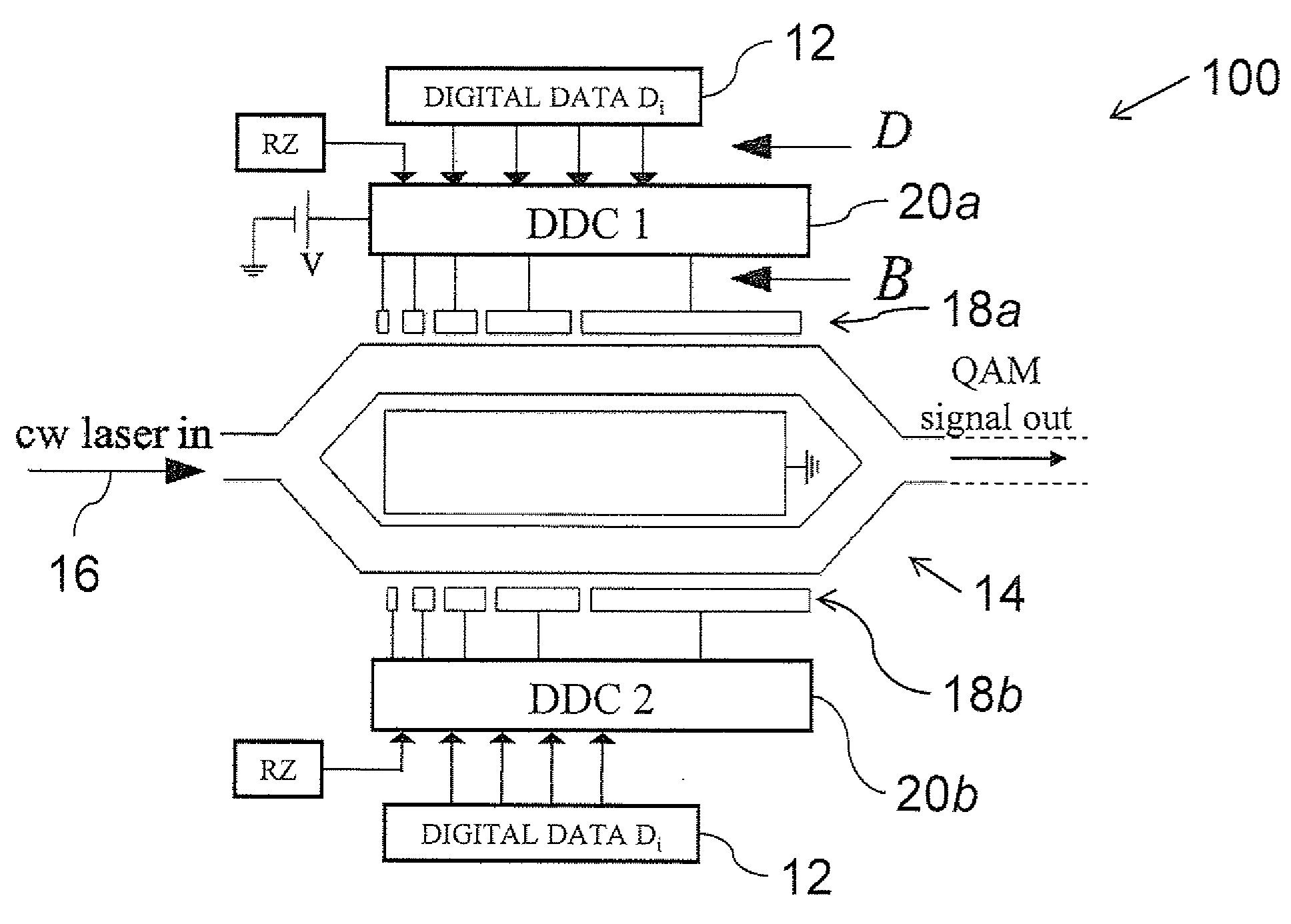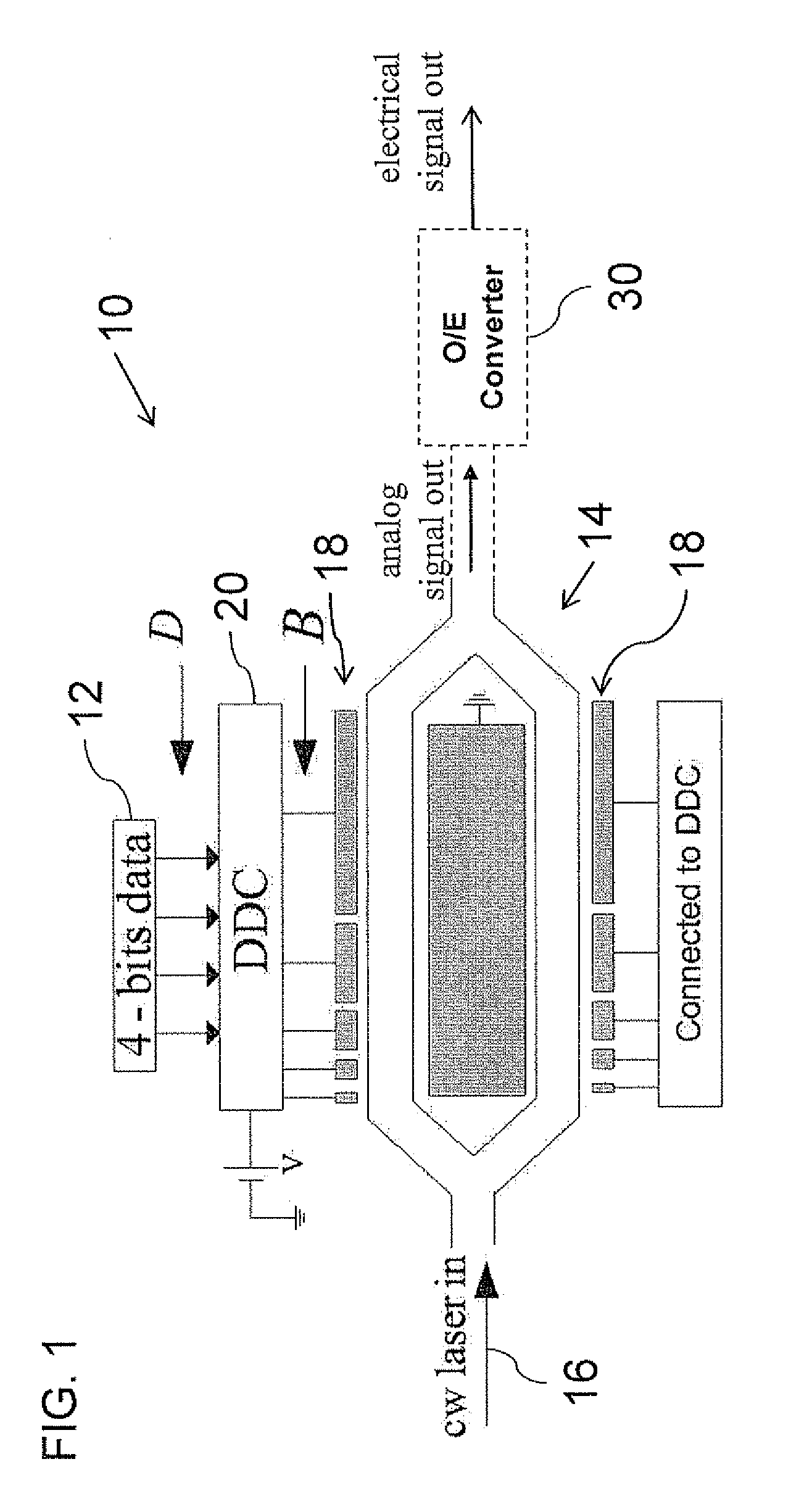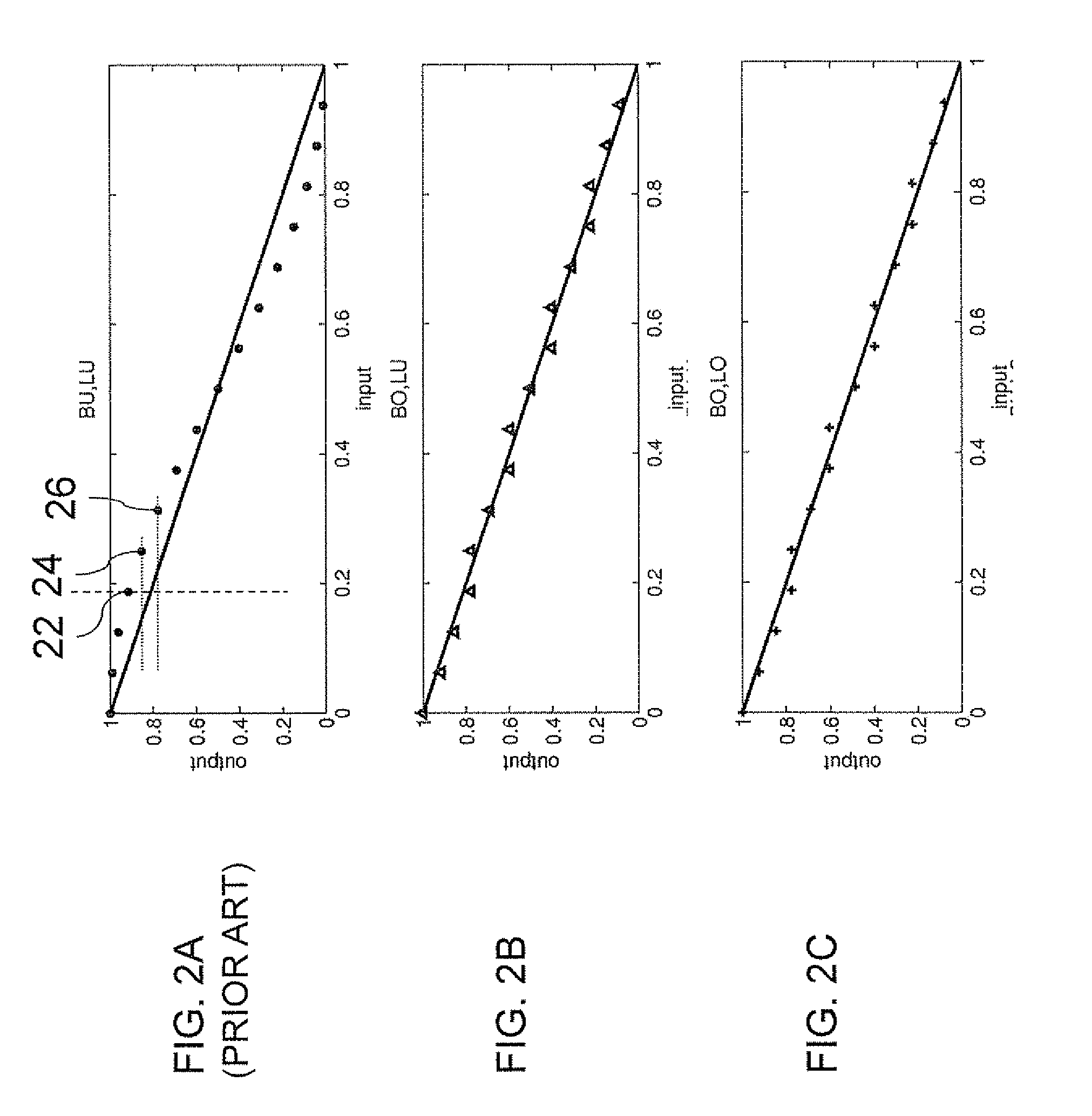Linearized optical digital-to-analog modulator
a linearized optical and analog modulator technology, applied in the field of optical modulators, can solve the problems of severe dynamic range limitation, non-linear response of the modulator, and subsequently the attainable resolution
- Summary
- Abstract
- Description
- Claims
- Application Information
AI Technical Summary
Benefits of technology
Problems solved by technology
Method used
Image
Examples
example i
Mach-Zehnder Modulator
[0072]By way of example, there will now be presented a theoretical treatment of one particularly preferred example of modulator device 10 implemented using a Mach-Zehnder modulator, also referred to as a Mach-Zehnder Interferometer or “MZI”. This theoretical treatment is presented to facilitate an understanding of the present invention and as a suggested technique for calculating certain parameters. However, it should be noted that the invention as described above has been found to be effective, independent of the accuracy or otherwise of this theoretical treatment.
[0073]The Mach-Zehnder modulator is an active integrated waveguide device consisting of a higher index guide region that splits into two paths which are combined again after a certain distance. Each of these paths is referred to as a leg or branch. When used as a switch, the MZI may be turned “off” by raising or lowering the index of refraction in one of the legs. This is achieved by employing the el...
example ii
Electro-Absorption Modulator
[0086]As mentioned earlier, the present invention is not limited to implementations based on Mach-Zehnder modulators, and can be implemented using any device which modulates light intensity as a function of applied voltage. By way of one additional non-limiting implementation, FIG. 8 shows an analogous implementation of the present invention using an electro-absorption modulator.
[0087]An electro-absorption modulator (EAM) is a semiconductor device which allows control of the intensity of a laser beam via an electric voltage. Its operational principle is typically based on the Franz-Keldysh effect, i.e., a change of the absorption spectrum caused by an applied electric field, which usually does not involve the excitation of carriers by the electric field.
[0088]By realizing N or more electrodes we can use the EAM as a high speed electro-optical Digital-to-Analog converter, in a similar fashion as we used the MZI. As in modulator device 10 described above, t...
example iii
Modulated Light Generation Device
[0090]The present invention is applicable also to other devices where digital information carried by voltage or current is translated into analog optical signals in the form of optical power. This includes also light generation devices like Light Emitting Diodes (LED) or semiconductor lasers. By way of illustration, FIG. 9 shows a semiconductor laser implementation of the present invention.
[0091]Specifically, FIG. 9 shows a semiconductor laser DAC device, generally designated 40, constructed and operative according to the teachings of the present invention. The actuating electrode, typically implemented as a single contiguous electrode, is here subdivided into a threshold electrode 42 and M actuating electrodes 18. The threshold electrode 42 is typically needed to reach a minimum activation current below which no significant output is generated. Actuating electrodes 18 are actuated as a function of the data bits of a digital input 12, in this case a ...
PUM
| Property | Measurement | Unit |
|---|---|---|
| actuating voltage | aaaaa | aaaaa |
| phase | aaaaa | aaaaa |
| actuating voltages | aaaaa | aaaaa |
Abstract
Description
Claims
Application Information
 Login to View More
Login to View More - R&D
- Intellectual Property
- Life Sciences
- Materials
- Tech Scout
- Unparalleled Data Quality
- Higher Quality Content
- 60% Fewer Hallucinations
Browse by: Latest US Patents, China's latest patents, Technical Efficacy Thesaurus, Application Domain, Technology Topic, Popular Technical Reports.
© 2025 PatSnap. All rights reserved.Legal|Privacy policy|Modern Slavery Act Transparency Statement|Sitemap|About US| Contact US: help@patsnap.com



